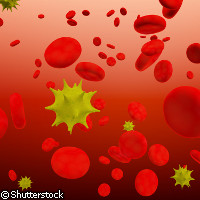Start HIV antiretroviral treatment sooner not later, researchers say
HIV-1 infected patients should receive combination antiretroviral therapy (cART) earlier, new research shows. Currently, the cell count threshold of T-cells (white blood cells) used to determine when antiretroviral therapy should start is set too low, the study published online in The Lancet says. There should be no less than 350 T-cells containing the glycoprotein CD4 per microlitre (µL) of blood. This finding should help guide physicians and patients in determining when treatment should begin. The researchers for the study obtained data for 45,691 patients in Europe and North America. Specifically, 21,247 patients were followed up during the pre-cART era (including subjects from the EU-funded CASCADE ('Concerted action on seroconversion to AIDS and death in Europe') project), while 24,444 patients were followed up from the start of treatment, the researchers said. According to them, deferring combination therapy until a CD4 cell count of 251-350 cells per µL was linked to higher rates of AIDS and death: Compared with patients who received therapy in the range of 351-450 cells per µL, an additional 28% of patients developed AIDS and died when treatment set in later. The researchers noted that, the lower the number of CD4 cells, the greater the adverse effect of later treatment became. Higher mortality rates (13%) were also associated with deferred initiation of combination therapy. The authors of the study evaluated data from 18 prospective studies from Europe and North America, and 15 of these provided eligible patients that were not treated with antiretroviral drugs. The eligible patients had begun cART on or after 1 January 1998. Data from patients followed up in seven cohorts during the period before cART were used to estimate the relationship between when treatment started and AIDS-related events or death, the researchers said. 'When patients and their physicians consider starting antiretroviral treatment, they must balance its beneficial effects on rates of progression to AIDS and death with several other issues,' the researchers wrote in their paper. 'Eradication of HIV from an individual is not currently possible; therefore, treatment is expected to be life-long. Antiretroviral drugs can be inconvenient to take, and have side-effects that include nausea, diarrhoea, and headache,' they added. 'Combination antiretroviral therapy is associated with serious toxic effects like hepatitis, renal failure and mitochondrial toxicity, and an increased risk of cardiovascular disease.' The choice of drug regimen can help avoid these toxic effects, they underlined. The CD4 cell count has always been a mystery when trying to determine the care of HIV-1 infected patients. 'Our findings should help to guide physicians and patients in deciding when to start antiretroviral treatment,' the authors wrote. 'The evolution of guidelines has been compared to the swings of a pendulum, from initial enthusiasm for early treatment, through to caution because of concern about toxic effects and the risk of resistance and loss of treatment options, to more recent calls for earlier treatment.' According to the researchers, the diagnosis of HIV in patients is not made until their CD4 count drops below 350 cells per µL, or even below 200 cells per µL. Regular testing of people at risk is important, they said, adding that the earlier the diagnosis is made, the faster they can be treated. Participating in this study were researchers from Canada, France, Germany, South Africa, the Netherlands, the UK and the US.



